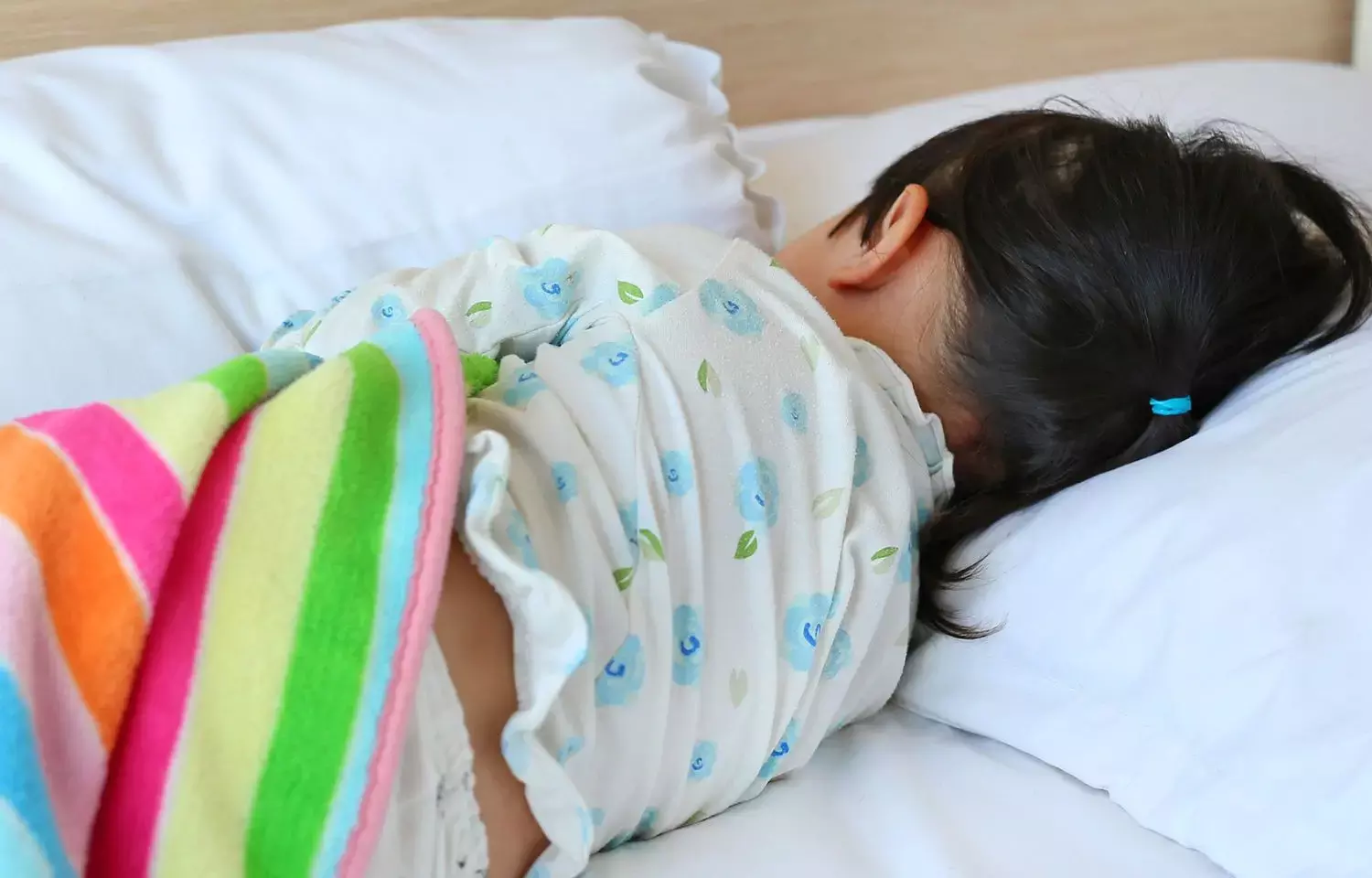- Home
- Medical news & Guidelines
- Anesthesiology
- Cardiology and CTVS
- Critical Care
- Dentistry
- Dermatology
- Diabetes and Endocrinology
- ENT
- Gastroenterology
- Medicine
- Nephrology
- Neurology
- Obstretics-Gynaecology
- Oncology
- Ophthalmology
- Orthopaedics
- Pediatrics-Neonatology
- Psychiatry
- Pulmonology
- Radiology
- Surgery
- Urology
- Laboratory Medicine
- Diet
- Nursing
- Paramedical
- Physiotherapy
- Health news
- Fact Check
- Bone Health Fact Check
- Brain Health Fact Check
- Cancer Related Fact Check
- Child Care Fact Check
- Dental and oral health fact check
- Diabetes and metabolic health fact check
- Diet and Nutrition Fact Check
- Eye and ENT Care Fact Check
- Fitness fact check
- Gut health fact check
- Heart health fact check
- Kidney health fact check
- Medical education fact check
- Men's health fact check
- Respiratory fact check
- Skin and hair care fact check
- Vaccine and Immunization fact check
- Women's health fact check
- AYUSH
- State News
- Andaman and Nicobar Islands
- Andhra Pradesh
- Arunachal Pradesh
- Assam
- Bihar
- Chandigarh
- Chattisgarh
- Dadra and Nagar Haveli
- Daman and Diu
- Delhi
- Goa
- Gujarat
- Haryana
- Himachal Pradesh
- Jammu & Kashmir
- Jharkhand
- Karnataka
- Kerala
- Ladakh
- Lakshadweep
- Madhya Pradesh
- Maharashtra
- Manipur
- Meghalaya
- Mizoram
- Nagaland
- Odisha
- Puducherry
- Punjab
- Rajasthan
- Sikkim
- Tamil Nadu
- Telangana
- Tripura
- Uttar Pradesh
- Uttrakhand
- West Bengal
- Medical Education
- Industry
Melatonin not for kids without medical advice, warn sleep experts

The American Academy of Sleep Medicine released a health advisory encouraging parents to talk to a health care professional before giving melatonin or any supplement to children.
Melatonin use among children and teenagers is on the rise and as a result of more unintentional melatonin ingestions in young children, the Centers for Disease Control and Prevention has reported increased calls to poison control centers and visits to the emergency room.
Melatonin is a natural hormone that helps us regulate our sleep-wake timing. While melatonin is widely available over the counter and marketed as a sleep aid, there is little evidence that taking it as a supplement is effective in treating insomnia in healthy children.
In addition, melatonin has less oversight since it is regulated by the Food and Drug Administration as a dietary supplement, and research has found that the melatonin content in supplements can vary widely. One study found the most significant variability in melatonin content was in chewable tablets-the form children are most likely to use.
"While melatonin can be useful in treating certain sleep-wake disorders, like jet lag, there is much less evidence it can help healthy children or adults fall asleep faster," said Dr. M. Adeel Rishi, vice chair of the AASM Public Safety Committee and a pulmonology, sleep medicine, and critical care specialist at Indiana University Health Physicians.
"Instead of turning to melatonin, parents should work on encouraging their children to develop good sleep habits, like setting a regular bedtime and wake time, having a bedtime routine, and limiting screen time as bedtime approaches."
According to the CDC, from 2012-2021, the annual number of melatonin ingestions in children that were reported to U.S. poison control centers increased 530%, and melatonin became the most frequently ingested substance among children in 2020. More than 4,000 of the reported ingestions led to hospitalizations, and 287 pediatric patients required intensive care. Symptoms of a melatonin overdose can include headache, dizziness and irritability.
To address the safe use of melatonin in children and teens, the AASM advises that:
1. Melatonin should be handled as any other medication and kept out of reach of children.
2. Before starting melatonin or any supplement in their children, parents should discuss this decision with a pediatric health care professional. Many sleep problems can be better managed with a change in schedules, habits, or behaviors rather than taking melatonin.
3. If melatonin is used, the health care professional can recommend the melatonin dose and timing for the sleep problem. Parents should select a product with the USP Verified Mark to allow for safer use.
"The availability of melatonin as gummies or chewable tablets makes it more tempting to give to children and more likely for them to overdose," said Rishi. "Parents should talk directly with their child's health care professional before giving their children melatonin products. Often, behavioral interventions other than medication are successful in addressing insomnia in children."
Dr Kamal Kant Kohli-MBBS, DTCD- a chest specialist with more than 30 years of practice and a flair for writing clinical articles, Dr Kamal Kant Kohli joined Medical Dialogues as a Chief Editor of Medical News. Besides writing articles, as an editor, he proofreads and verifies all the medical content published on Medical Dialogues including those coming from journals, studies,medical conferences,guidelines etc. Email: drkohli@medicaldialogues.in. Contact no. 011-43720751


